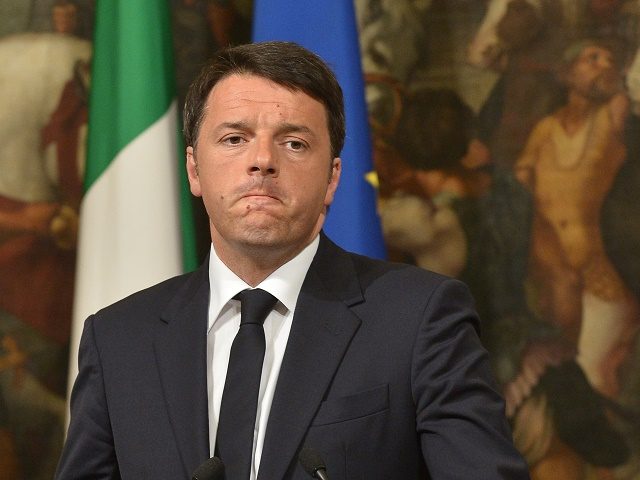ROME (AFP) – Italian Prime Minister Matteo Renzi heads into a make-or-break constitutional referendum this weekend insisting everything is still to play for in his fight to hold on to power.
“Never have there been so many people undecided. The referendum match will be decided in the last 48 hours,” the centre-left leader said in a Q and A session session on Facebook on Friday.
Renzi, 41, is battling to defy opinion polls which point to his proposals to streamline parliament being rejected.
Such an outcome is expected to trigger the reformist premier’s resignation after just under three years in office and plunge the country and Europe into a phase of political uncertainty.
After Britain’s vote to leave the EU and Donald Trump’s presidential triumph in the United States, Renzi is being portrayed as next in line to suffer a populist backlash from fed-up and forgotten voters.
The narrative has played strongly internationally but less so in Italy, where the merits of the proposed reform itself have been vigorously debated in a contest which has also focused on Renzi’s record and personality.
At stake Sunday is whether to slash the size and powers of the second-chamber Senate and transfer other powers from the regions to the national government.
Renzi has vowed to quit if voters reject changes he says will mean more effective leadership of a country that has had 60 different governments since the constitution was approved in 1948.
As a result, it seems certain some disgruntled voters will vote No as a form of protest either against Renzi or over years of economic stagnation.
– High stakes –
But the proposals have also come under fire from opponents who see them as ill-considered and potentially opening the door to the kind of authoritarian rule the constitution is designed to prevent.
“This reform reduces the autonomy of local authorities and it concentrates too much power in the hands of the government without the necessary checks and balances,” former prime minister Massimo D’Alema, a party colleague of Renzi’s, told AFP.
Politically and economically, the stakes are high.
Renzi sees the emasculation of the second chamber as key to ensuring difficult but necessary legislation does not get blocked or delayed in parliament while saving nearly 500 million euros ($532 million) a year in operating costs.
“If you want to abolish the privileges of the most expensive political caste in the world, you have to vote yes,” the youthful premier said Friday.
Opponents insist the savings will be much smaller and that the legislative gridlock problem is exaggerated: Renzi did not have any trouble getting his controversial Jobs Act through parliament last year.
A No vote would bolster Italy’s populist and far-right opposition parties, already buoyed by Trump’s success.
Beppe Grillo, leader of the populist Five Star Movement, hailed the US election result as a “massive screw you” from voters and has urged Italians to deliver a similar message to their own establishment.
Matteo Salvini, leader of the xenophobic Northern League, meanwhile tells voters the Yes campaign represents “the bankers, the German government and a bunch of Brussels bureaucrats.”
– No camp well ahead –
Economically, the biggest concern is that post-referendum political instability could scupper Italy’s efforts to resolve a bad loans crisis in the banking sector and spark turmoil across the eurozone.
A lot of variables need to come together for that to happen. But the fear of defaults and contagion looms in the background: Italian banking stocks have halved in value this year and government borrowing costs have edged higher in the run-up to the vote.
Renzi’s allies say the most likely No scenario would involve Renzi handing over the premier’s role to Finance Minister Pier Carlo Padoan but remaining head of his Democratic Party with an eye on a comeback at the next election, due by Spring 2018.
The last permitted polls, published on November 18, gave the No camp at least a five-to-eight point lead with more than a quarter of voters undecided.
The Yes camp received a boost Friday when it was reported that around 40 percent of the four million Italians overseas who are entitled to vote had cast their ballots through embassies and consulates around the world.
There was no official confirmation of what would be a high expat turnout, which media interpreted as helpful for the Yes camp.
The No side meanwhile are fretting about apathy affecting turnout on Sunday in the most disaffected parts of the homeland, notably the relatively impoverished south.

COMMENTS
Please let us know if you're having issues with commenting.